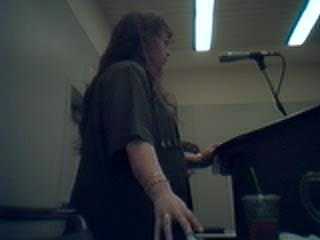

Lara Gillian C. Hill, English Teacher, Rancocas Valley Regional High School, Mount Holly, NJ
A Presentation Given at National Council Teachers of English Convention in Baltimore, MD
Friday, November 16, 2001
PowerPoint Presentation - https://lhillclasses.tripod.com/hillncte.htm
Evaluating Web Sites Mini-Unit - https://lhillclasses.tripod.com/blindedbythelight.htm
It seems safe to assume we would
all like our students to earn "A"s in our classes.
We try many different ways to reach our students and to help them to
achieve the greatest possible amount of learning within the small amount of time
we spend with them. Each lesson plan. Endless
internal conversations where we mull over what worked and what we failed to do.
Every hour we spend scouring resources for the elusive "Holy
Grail" -- that one activity that will help our students become not only
better thinkers, but thinkers who can also pass standardized tests.
All of these things and more are just some examples of ways that a
teacher may strive to improve their teaching ability.
Yet, in our race to improve our methods of teaching English, too many
teachers still avoid using technology in the everyday classroom.
Although I am early into my
teaching career, I have spent the first ten years of my professional life
working with computers -- from training novices, to computerizing companies, to
running a network. Believe me, I
know what difficulties can arise with computers, which have become the major
tool of technology. Nevertheless, I
also know the exceptional things they can do to improve our lives.
I believe that too many English teachers are just not aware of the ways
that computers and technology can improve our ability to teach, nor of the
efficiency by which they can accomplish many, often mundane, tasks, which we are
required to do. During my presentation, I intend to address my "A"
list of the top ways that technology can be utilized to improve our
effectiveness in teaching, our students' quality of learning and our management
of time.
Act
of Learning
•Amplification
of abilities
•Advanced
thinking skills
Act
of Teaching
•Augmentation
of learning
•Authentic
assessment
•Animation
of students’ interest
•Administrative
tasks
Access
to Resources
•Affiliations
with others
•Access to information
This presentation is an expansion of an article I wrote for
the November 2000 edition of English Journal under the “Cross
Conversations” column.
©2001 Lara Gillian C. Hill - All rights reserved.